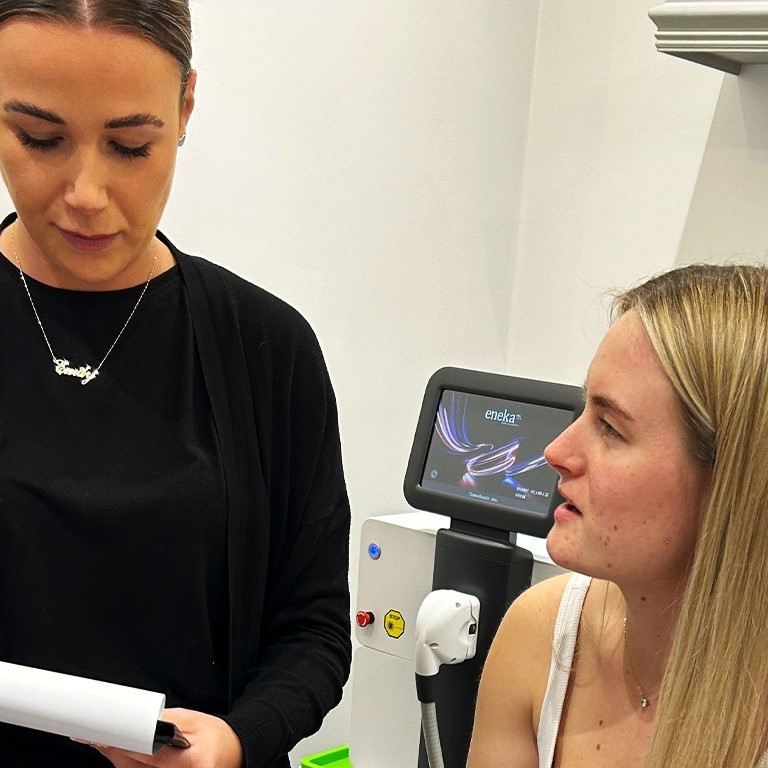
Does Laser Hair Removal Cause Cancer? Find the Facts Here!
Introduction: The Growing Popularity of Laser Hair Removal
In recent years, laser hair removal has surged in popularity as a long-term solution for unwanted body hair. Many individuals opt for this method due to its efficiency and effectiveness compared to traditional hair removal techniques like shaving and waxing. However, amidst its growing use, a question persists: Does laser hair removal cause cancer? Understanding the science behind laser hair removal and its alleged risks is essential for anyone considering this procedure.
Numerous myths and misconceptions surround laser hair removal, particularly concerning health and safety. With the treatment gaining traction in beauty clinics, it is vital to separate fact from fiction. This article will delve into existing research, address common concerns, and clarify whether laser hair removal increases the risk of cancer or not.

What is Laser Hair Removal?
Laser hair removal is a cosmetic procedure that uses concentrated light to target and destroy hair follicles to prevent future hair growth. During the process, a laser emits a beam of light that is absorbed by the pigment (melanin) in the hair. The heat generated destroys the hair follicles, leading to long-lasting hair reduction.
Typically, individuals may require multiple sessions for optimal results, and while the procedure is largely safe, it does come with some risks and side effects. Understanding the nature of these risks is important as it may influence people’s decisions when considering this method for hair removal.
Understanding the Technology Behind Laser Hair Removal
Does laser hair removal cause cancer? Laser hair removal technology relies on advanced medical-grade lasers specifically engineered for cosmetic purposes. Below are key points that illustrate the intricacies and considerations of this technology:
Medical-Grade Lasers:
The lasers used in hair removal are not just any light sources; they are high-quality medical-grade devices that meet strict safety and performance standards. These lasers are crafted to effectively target hair follicles while minimizing harm to surrounding tissues.
Versatility of Applications:
In addition to hair removal, the technology is capable of various cosmetic applications. These can include skin resurfacing, which helps improve skin texture and reduce wrinkles, as well as the treatment of pigmentation issues such as age spots and melasma. This versatility highlights the advanced nature of the laser systems.
Customized Treatment:
The procedure is performed by licensed professionals who have undergone extensive training to operate these complex devices. This expertise ensures that the correct laser settings are applied according to each individual’s specific skin type and hair color. For instance, lighter skin typically requires different settings than darker skin to achieve optimal results.
Safety Protocols:
Licensed practitioners adhere to strict safety protocols during the procedure. They assess the patient’s skin and hair characteristics before treatment, providing tailored adjustments to laser intensity and treatment duration. This individualized approach reduces the likelihood of adverse effects.
Long-Term Effects and Concerns:
Despite the advanced nature of laser technology, many individuals express concerns regarding the long-term effects of laser hair removal. A primary worry involves the treatment’s potential link to cancer. While numerous studies validate the procedure’s effectiveness and safety, it is only natural for patients to feel apprehensive about exposing their skin to powerful light sources.
Scientific Research:
Continuous scientific research aims to address these concerns by gathering data on the long-term safety of laser hair removal. Ongoing studies are essential for ensuring that patients can make informed decisions regarding their beauty treatments.
Patient Education:
Education plays a vital role in alleviating fears associated with laser hair removal. Practitioners are encouraged to discuss the technology, its safety measures, and the absence of evidence connecting it to cancer. This helps foster a trusting relationship between patients and professionals.
Final Thoughts on Technology:
In conclusion, the technology behind laser hair removal represents a significant advancement in cosmetic treatment. While concerns about safety may persist, the combination of professional oversight and scientifically-backed equipment lends credibility to this popular hair removal method. Patients should remain informed and engaged in discussions with their healthcare providers to approach the procedure with confidence.
Does Laser Hair Removal Increase the Risk of Cancer?
Does laser hair removal cause cancer? The concern surrounding laser hair removal and its potential link to cancer is a prevalent topic among individuals considering this cosmetic procedure. Here are key points addressing this important issue:
Public Concern:
The primary apprehension regarding laser hair removal revolves around the possibility that it may increase cancer risk. Many individuals are understandably cautious about exposing their skin to intense light, leading to widespread speculation.
Extensive Research:
To address these concerns, extensive research has been conducted examining the relationship between laser hair removal and cancer. Numerous studies have scrutinized the safety and long-term effects of this technology on human health.
American Society for Dermatologic Surgery:
According to the American Society for Dermatologic Surgery, there is currently no credible evidence that directly links laser hair removal to an increased risk of developing cancer. This respected organization plays a crucial role in setting safety guidelines and providing reliable information.
Mechanism of Action:
The lasers used in hair removal treatments operate at a superficial level, specifically targeting hair follicles located at the skin’s surface. As these lasers focus on the outer layers of the skin, they do not reach or alter the deeper cells that could potentially lead to cancer development.
Energy Levels and Safety:
The energy levels employed in laser hair removal procedures are carefully calibrated and are considered safe for cosmetic applications. These levels are set to efficiently target hair follicles while minimizing any potential harm to surrounding tissues.
Regulation of Equipment:
Most professionals utilize well-regulated equipment that meets stringent safety standards established by health authorities. The adherence to these standards helps ensure that the lasers used are suitable for cosmetic purposes and have been tested for safety.
Confidence in the Procedure:
With the backing of scientific research and regulatory oversight, patients can approach laser hair removal with confidence. Knowing that there is no significant cancer risk associated with the procedure allows individuals to make informed choices about their hair removal options.
Continued Vigilance and Education:
Although current evidence supports the safety of laser hair removal, ongoing research is essential. Health authorities and practitioners should continue monitoring the long-term effects of this treatment to provide the most accurate and up-to-date information to patients.
Is Laser Hair Removal 100% Safe?
While many studies indicate that laser hair removal is generally safe, no procedure is entirely free of risks. Potential side effects include temporary redness, swelling, and irritation of the treated area. Some individuals may also experience changes in skin pigmentation, particularly those with darker skin types.
It is essential for candidates to discuss their medical histories and potential side effects with their practitioners during pre-treatment consultations. Pre-existing conditions or certain medications may influence how an individual may react to laser therapy. Overall, while the procedure is safe for many, consulting a qualified professional is crucial to ensure a suitable match for the laser type and treatment plan.
Can Laser Hair Removal Harm You?
As previously mentioned, while laser hair removal is broadly safe, there are limitations on who should engage in this treatment. Those with specific health issues, such as skin conditions or recent tanning, might be unsuitable candidates for laser hair removal.
Nevertheless, whenever performed by licensed aesthetic professionals, the risk of permanent harm remains minimal. Practitioners will ensure that safety protocols are in place and personal skin characteristics are carefully assessed before proceeding. Overall, significant adverse effects are rare when proper precautions are exercised.
Who is Not a Good Candidate for Laser Hair Removal?
Several factors can disqualify someone from undergoing laser hair removal. Individuals with darker skin tones must exercise caution, as lasers can sometimes lead to skin discoloration. The presence of certain skin conditions, such as psoriasis or dermatitis, may also be a reason to avoid the treatment.
Pregnant individuals or those with a history of specific medical conditions should discuss their concerns with a healthcare provider prior to considering laser hair removal. Ultimately, it is crucial to engage in open communication with professionals regarding any health-related issues that could affect the procedure’s safety and efficacy.
Conclusion: Making An Informed Decision
Does laser hair removal cause cancer? In summary, the evidence suggests that laser hair removal does not cause cancer. Safety measures and technological advancements have made this method a popular choice for hair removal, allowing many to achieve smoother skin with minimal risk.
While there are associated risks, they are typically manageable when performed in a controlled and professional setting. Those who are considering this option should consult with qualified practitioners to evaluate their unique circumstances, ensuring confidence in their hair removal journey. If you’re seeking a dependable hair removal solution, laser hair removal may be worth considering as long as you prioritize safety and proper care.




